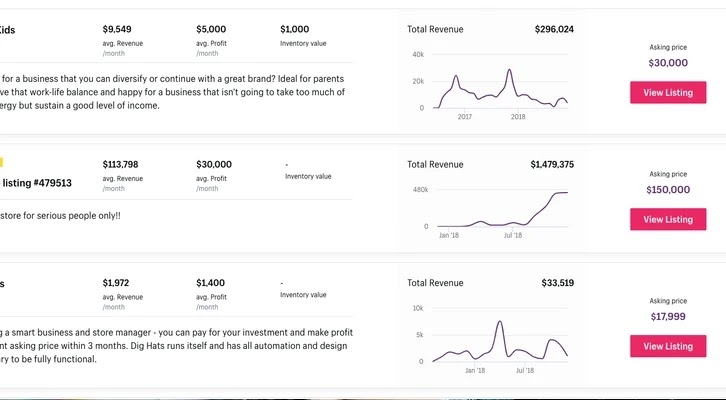When you think of owning and operating a business, you might think about renting commercial real estate, commuting to an office, or managing employees.
But with the rise of home businesses, more and more people are discovering ways to use remote work to pursue entrepreneurship with their headquarters at home.
In today’s connected world where technology affords us more flexibility in how and where we work, home-based businesses come in a wide variety of forms.
Some require you to convert a spare room into a mini-warehouse for products, while others can be run completely online. But generally, you can start these types of businesses using your existing space and means.
What makes a “home-based” business: The pros and cons
A home-based business is a venture—whether full-time or run as a side hustle—that you can start and operate using your own home as your base of operations. A few home-based businesses, especially those that sell online and don’t buy and hold lots of inventory, can even be run on the go—you don’t necessarily need to be bound to your home.
Naturally, there are pros and cons to consider when deciding whether a home-based business is right for you.
Pros:
- A low investment business idea has fewer overhead costs (such as warehousing fees), plus potential tax deductions you can claim.
- The option to sell products or services locally or internationally.
- Flexible work/life balance, which is ideal if you’re a stay-at-home parent or a retiree, for example.
- You can create a family business where your relations or your spouse can chip in as needed
Cons:
- You may need to convert space in your home to support the needs of your home business (e.g. holding inventory, creating a home office, or storing equipment). The challenge can be doing it without disrupting your life at home.
- You still have to comply with any regulations that pertain to the business you want to start (e.g. you may still need to rent a commercial kitchen if you plan to sell food products or a license/permit to hold inventory).
- Your business may outgrow your home and require you to rent additional space and hire employees.
- Working from home offers you a lot of freedom, but it can also be lonely. This might be difficult if you enjoy being around other people.
8 home-based business ideas you can start today
While there are plenty of ways to go about starting a home-based business, the following are some of the most approachable paths to creating a home business for yourself:
- Buy products in bulk to sell
- Sell homemade products you make yourself
- Start a dropshipping store
- Start a print-on-demand store
- Sell your service or expertise
- Productize your service or expertise
- Grow an audience you can monetize
- Buy an existing ecommerce business
1. Buy products in bulk and sell them online
Many businesses center on the simple concept of importing products in bulk and selling them individually for a profit.
Maybe you recently traveled abroad and came across unique products that aren’t readily available in your market despite an appetite for them. Or maybe you’ve zeroed in on a niche and know the perfect products to serve its customers.
Either way, if these products are relatively easy to store and ship, you may have a solid home-based business idea on your hands. Blue light blocking glasses, for example, are small and durable enough to store in your own home.
Your home can even be used as an initial showroom—which is how Artemis Design Co. got its start—to sell locally, giving you the option to expand with additional storage space and employees as you validate your idea and sales start to ramp up.
“I was living in the south end of Boston, and I had my living room just full of these products. I would have people come over if they wanted to look at something or try something on, and that’s how I made my first sale.”
2. Sell homemade products
If you’re a maker yourself (or know someone who is), you can also consider turning a hobby into a business. Even if you have to create your products elsewhere—in a studio, commercial kitchen, or workshop—you may be able to store them and sell them in your own home.
With the ability to control nearly every aspect of the products you sell, you can make them more cost-effective, improve their quality, or cater them to a certain audience to target demand in the market.
Whether you choose to start on a marketplace like Etsy or want to build your own branded storefront, selling your creations is a great way to share your passion with others and make money too. Just be wary of regulations concerning products that customers ingest or put on their skin.
Examples of handmade products you can sell include:
- Candles
- Jewelry
- Cosmetics
- Art
- Food
- Apparel
Best of all, producing your own products doesn’t have to be overwhelming. When you’re ready to scale, you can establish a process and onboard new employees to help with production.
3. Start a DropShipping Store
So far, we’ve covered business ideas that require you to hold inventory in your home. But there are a variety of ideas to pursue that allow you to take inventory and shipping off your hands.
These businesses employ a dropshipping model, where a third party produces, stores, and ships your products on your behalf, leaving marketing and customer service as your chief responsibilities.
Your dropshipping supplier can be local or overseas, but you need to ensure you find a supplier you can trust to deliver a consistently great customer experience after the sale. Always do your due diligence or you might put your business’s reputation at risk.
There are even Shopify apps, such as Oberlo, that can connect you with suppliers to import products into your own store while streamlining order fulfillment.
At its core, dropshipping involves becoming a distributor of a third party's products, taking on the costs of marketing (time and money) to be rewarded with the margins when you make a sale. This can make your products a commodity in many cases with limited opportunities to brand your customer experience. Luckily, there are a few different ways you can still compete even when there’s no shortage of your products in the market you’re selling in:
- Curate products, from different suppliers, to create a store that serves a specific niche.
- Compete through quality content and customer service that creates value beyond your products.
- Target an underserved region of the world (be sure to pay attention to your shipping costs).
- Target a new audience with the same products (e.g. LED shoes can be marketed to music festival goers or runners).
4. Start a print-on-demand business
Using a similar dropshipping model, a print-on-demand business doesn’t require you to hold any inventory or ship it yourself either. Print-on-demand even offers you more flexibility to customize white label products with your own creative designs.
And there are a wide range of products you can sell: books, t-shirts, hats, backpacks, blankets, pillows, mugs, shoes, hoodies, phone cases, watches, and more depending on the supplier you choose to work with.
Many print-on-demand businesses focus on serving a specific niche or, better yet, a shared identity. What are people passionate about and proud to share? What about yourself? From pet owners to vegans to gamers, there are plenty of passionate communities you can create products for.
If you have design skills, then you can create your own designs. But if not, you can always hire the talent you need.
5. Sell your service or expertise
Services are even simpler than products to start selling at home, but the challenge is allocating your limited time. “Time is money” is never truer than when you’re running a service-based business.
Creative professionals, like designers or marketers, might freelance or consult with other companies, juggling multiple clients, often remotely from their own home office with the occasional travel. Others might operate based on appointments and bookings to offer their services to individuals directly.
Service-based home business ideas include:
- Tutoring
- House cleaning
- Freelance writing
- Personal training
- Virtual assistance
- Dog-walking
- Marketing
- Designing
Service-based businesses often require a lot of networking and word of mouth referrals to find suitable clients, but satisfied clients will likely retain your services over time and continue to give you their business.
For this reason, you don’t necessarily need a large number of customers to do well, as you would with a product-based business. Depending on the service you’re offering, a handful of high-quality clients can be enough to support yourself full-time while working from home.
6. Productize your service or expertise
As we just discussed, one of the biggest downsides of running a service-based business is that you are being paid strictly for your time, skills, and effort.
“Productizing” your service—creating digital or physical products that package up your expertise, and streamline or complement the service you offer—can add additional revenue streams to your business. You can cater to your current customer base or even find a new target customer in the same space.
Some ideas for adding products to your service-based business include:
- Courses
- Designs
- Licensable assets (stock footage, music, etc.)
- Downloadable reports
- Digital templates
- Merchandise
- eBooks
As you can see, most of these ideas involve digital media packaged as products, which means no inventory to keep around the house. If you’re running your home business on Shopify, you can sell digital products seamlessly using the Digital Downloads or SendOwl app.
If you want an example, you can hear how the owner of Retro Supply Co. productized his design skills to generate passive income below.
7. Grow an audience you can monetize
If you’re a content creator, have a sizable online audience already, or have always thought about starting your own blog, YouTube channel, Instagram account, or podcast, then you can potentially grow and then monetize your following using any of the previous ideas on this list.
On top of that, you can also explore becoming an affiliate—selling other products or services for a commission—or accepting payment for sponsored posts to give brands a chance to connect with your audience.
Building a loyal audience requires patience, consistency, and focus. This is not the easiest way to start a home-based business, especially not in the short-term, but if you’re able to build a following around something you love it can be one of the most fulfilling and enduring, giving you the flexibility to pursue multiple revenue streams at once.
The potential to monetize your audience often depends on the niche you choose to serve. If you’re starting from scratch or are in the midst of growing your own audience, be sure to check out the following guides to learn how to best grow and monetize the most popular channels:
8. Buy an existing eCommerce business
Last but not least, if you’re more interested in simply investing in a source of income that you can maintain while at home or on the go, then you can consider buying an established ecommerce business.
Prices can vary greatly based on a variety of factors, from total revenue generated, profit potential, available assets (like an email list or social following), inventory, and more. Some sellers will even onboard you and teach you the ropes of running their store.
Exchange is a marketplace powered by Shopify for buying and selling ecommerce stores. You can browse the listings for businesses that are suit your budget, level of experience, and needs. Maybe you want to buy a proven business and are willing to invest more money to acquire it. Or perhaps one catches your eye with untapped potential that you’d like to grow.
Find a home business idea that works for you
A home-based business is simply a remote-friendly business in today’s world where technology can close the gap between you, your suppliers, your employees, and your customers. Altogether, this makes for an opportunity to start small, grow nimbly, and invest conservatively—especially when you can cut out the costs of renting an office.
As you would when starting any type of business, think carefully about your goals, what motivates you, and what you enjoy working on in order to create a home business that works for you.














Posting Komentar
Posting Komentar